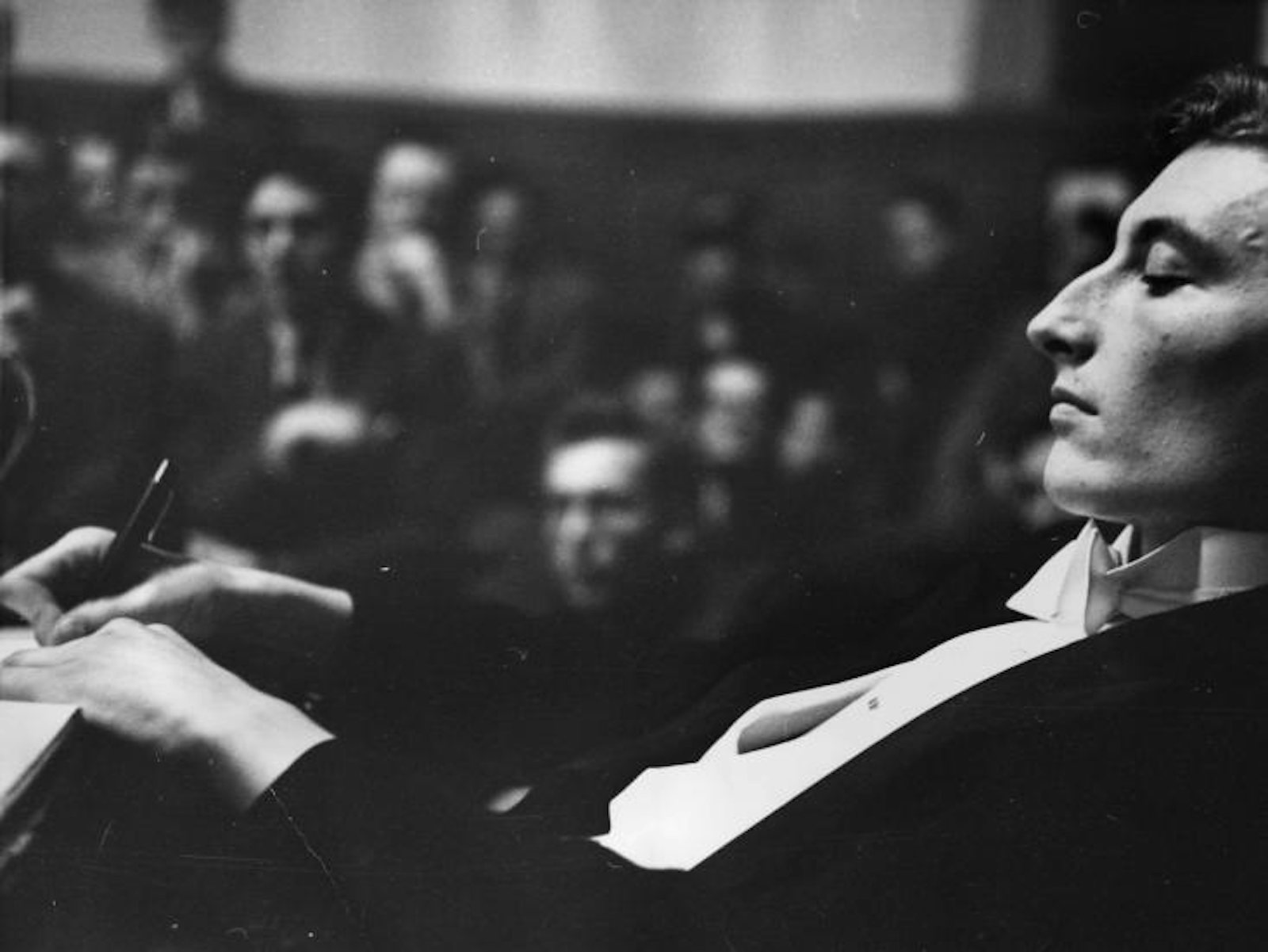In May 2015, an official vote was held by the Oxford University Student Union about clothing policy. It was over whether to keep “subfusc,” a traditional uniform dating back to the mid-seventeenth century—comprised of a dark suit or skirt, black shoes, white shirt, and a white or black bow tie or ribbon—mandatory for exams. The vote was overwhelming: Over seventy-five percent of Oxford students wanted to maintain it.
The argument over subfusc centered on the drawbacks of perceived elitism versus wholesome tradition. Some of the dissenters lambasted the outfit as snobbish, yet no one at the student union on voting day mentioned a recent scientific finding that could have completely changed the terms of the conversation: Different styles of dress may influence your test-taking skills. Wearing more formal clothing than your peers, according to a study published last year in Social Psychological & Personality Science, tends to make you think more abstractly, holistically, and creatively.
Abraham M. Rutchick, a psychologist at California State University, Northridge, was the study’s lead author. One of his great interests, he says, is “how nonconscious processes function in everyday life.” It’s not surprising he’d train his attention on the influence of clothing since, on his website, under a tab labeled “Fun,” he links to a cartoon saying: “This comic sometimes makes me laugh so hard I cry.” It shows a four-year-old wrecking havoc, at school and at home, because she (or he—the gender’s not clear) can’t contain the power she feels when she puts on her dinosaur costume.
In his experiment’s design, you can tell Rutchick suspected something similar was going on in the minds of formally dressed students. He asked sixty American undergraduates to rate how formally they were dressed relative to their peers, and then had them fill out a ten-item questionnaire that tested their abstract thinking. On it, participants answered questions like “voting is best described as” with either an “abstract” or a “concrete” answer. In this instance, the abstract option was “influencing the election” whereas the concrete option was “marking a ballot.” There were no “right” or “wrong” answers, and the questions generally concerned broad everyday subjects, so as not to favor certain academic majors or students with specialized skills.
Rutchik found that participants who rated their clothing as more formal than that of their peers tended to select the more abstract answers—a curious correlation. After following up with four additional sub-studies, each of which controlled for socioeconomic background (but not race) and either used different measures of abstract processing or manipulated the participants’ clothing, he confirmed the results from the principle study. In two of them, for instance, participants were asked to change from casual to formal clothing or from formal to casual clothing midway through the experiment.
“A man’s Self is the sum total of all that he can call his, not only his body and his psychic powers, but his clothes and his house.”
The notion that your outwear may influence your inner thinking is not entirely new. A 2002 study found that wearing formal or informal clothing primes one to think of oneself as either more “cultivated” and “accurate” (formal clothing) or “easygoing” and “tolerant” (informal clothing). A 2012 study titled “Enclothed Cognition” showed that when people wear a white coat and are told it belongs to a doctor, they become more attentive (an effect that did not persist when they were told the coat belonged to a painter). Even the nineteenth-century psychologist William James hinted at the powerful influence clothing could wield when, in The Principles of Psychology, he wrote, “A man’s Self is the sum total of all that he can call his, not only his body and his psychic powers, but his clothes and his house.”
Rutchick took the idea one step further, however, in aiming to show how the feelings engendered by certain kinds of clothing might lead to different kinds of behaviors. “The formality of clothing might not only influence the way others perceive a person, and how people perceive themselves, but could influence decision making in important ways through its influence on processing style,” writes Rutchik.
Does any of this mean that wearing formalwear will actually make you smarter? Not exactly. Smart is relative—different disciplines require different kinds of thinking. “In an engineering exam, you would do worse” if you were wearing more formal clothing relative to your peers, said Rutchick. “Whereas something more abstract like math or something non-formulaic or broad or unconstrained you’d do better.”
Certain situations require “concrete” thinking, he says, a type of thinking that is more concerned with formulae and details. For instance, craftsmen, sportsmen, and those who create tangible things require concrete thinking. In these instances, Rutchick suggests it might be best to dress down rather than up so as to focus on the task at hand—although it’s difficult to know, without further study, whether his results would translate from a group setting to a more individualized one, where you can’t compare your clothing to someone else’s.
That means that the uniform Oxford requires at exams may even the playing field for test takers. Formalwear creates inequalities, but only when some are dressed up and others are dressed down; when participants in Rutchick’s study felt that their formality of dress was relatively equal to their peers, for instance, their ability to think either more abstractly or concretely also disappeared.
“I’m absolutely delighted,” Harrison Edmonds, who led the pro-subfusc campaign, told The Guardian. “I think it sends a positive message from the students in Oxford that subfusc isn’t elitist but is egalitarian. No matter your background, race, class or gender, when you go into exams wearing the gown, you are equal.”
Cody Delistraty is a writer, producer, and historian based in Paris and New York. He writes for The New York Times, The Atlantic, and The New Yorker. Follow him on Twitter @Delistraty.
























